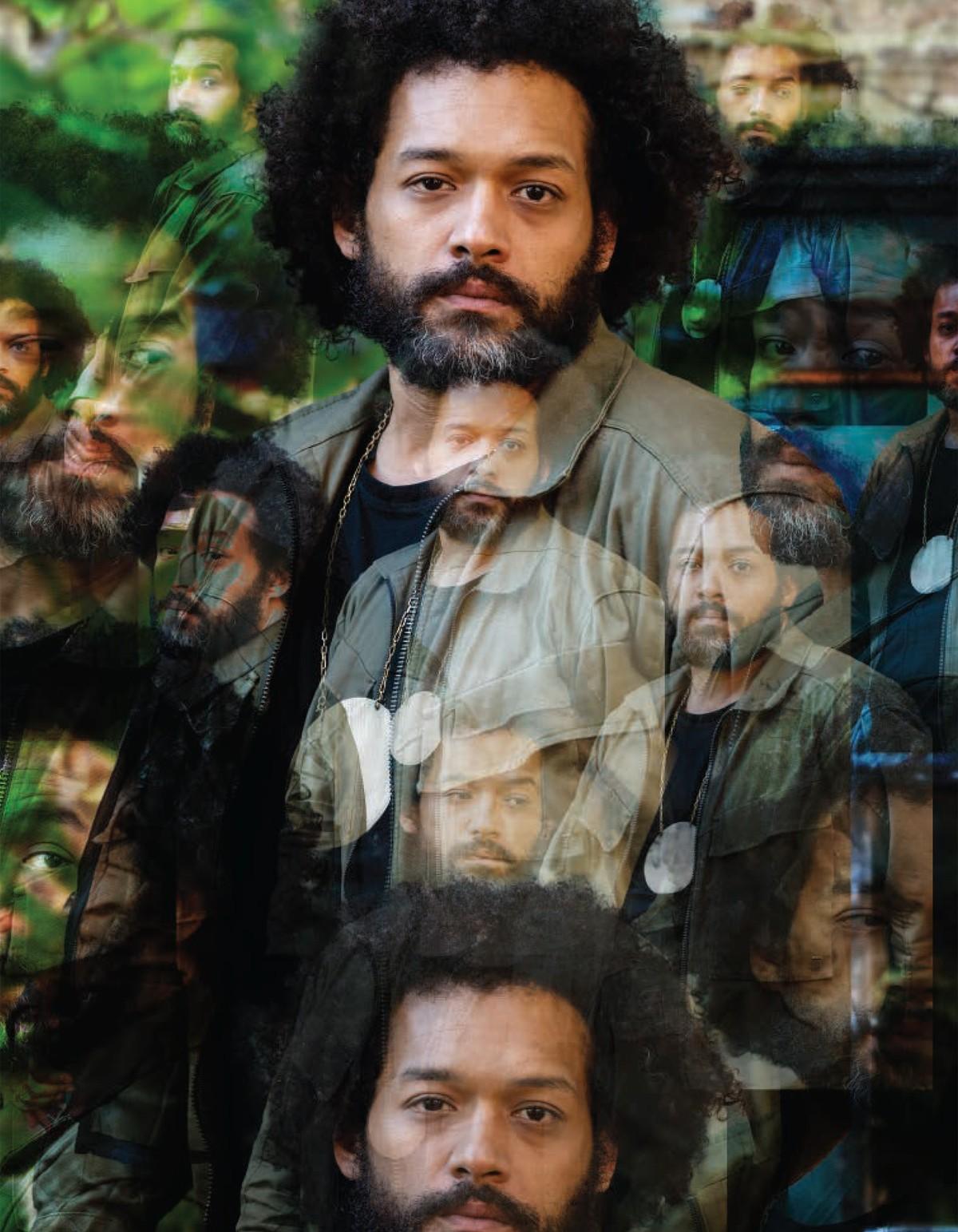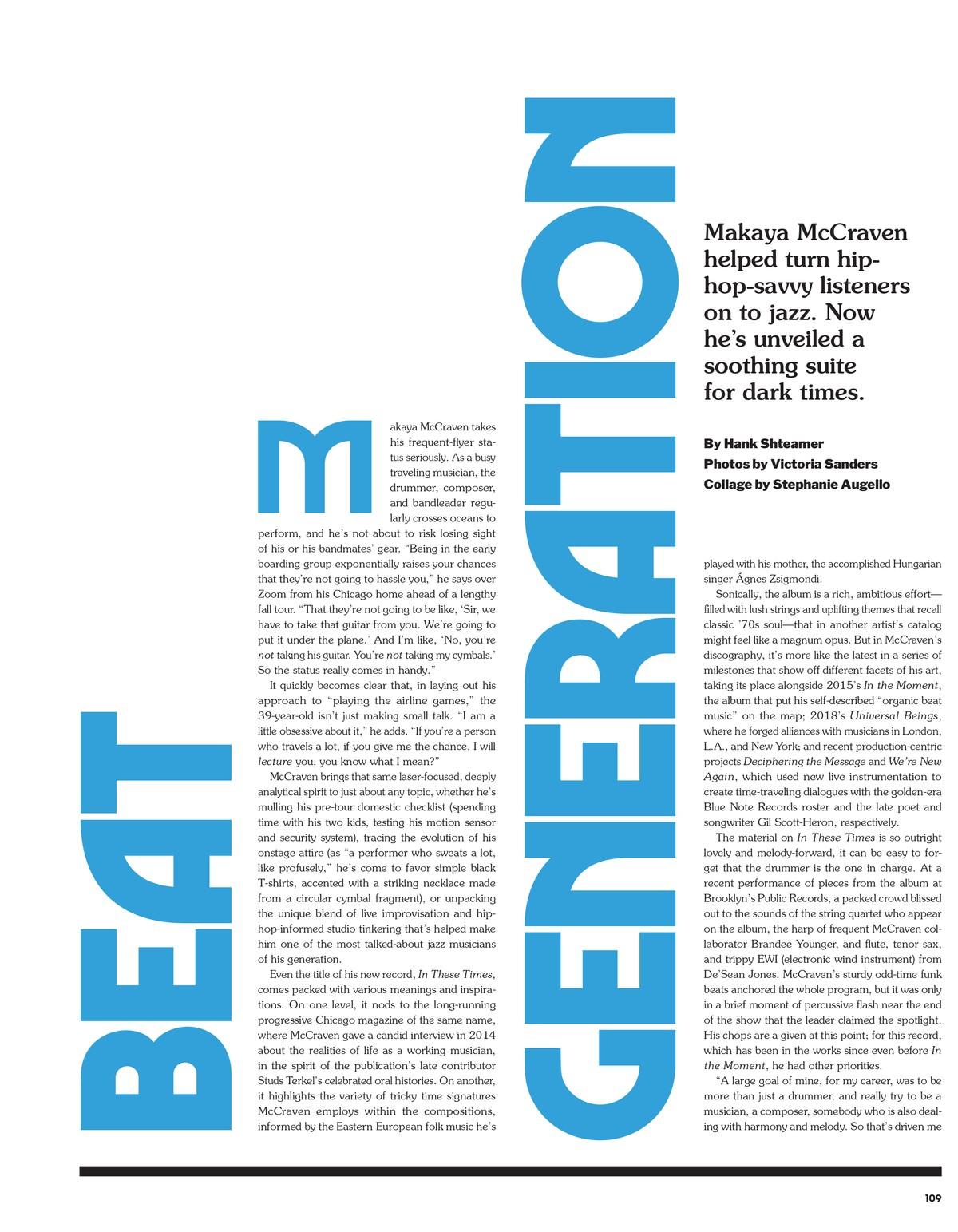Features
BEAT GENERATION
Makaya McCraven helped turn hiphop-savvy listeners on to jazz. Now he’s unveiled a soothing suite for dark times.
December 1, 2022


Loading...

Makaya McCraven helped turn hiphop-savvy listeners on to jazz. Now he’s unveiled a soothing suite for dark times.


Loading...